By Ellie Roberto, Digital Collections Social Media Editor, BA in Journalism 2022
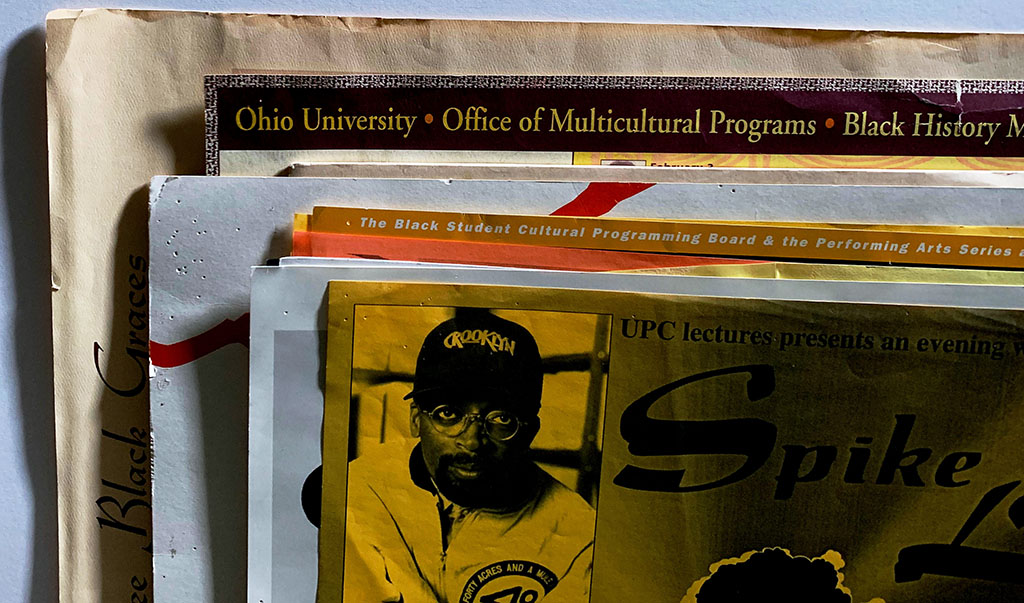
There’s a great deal of hard work going on behind the scenes in the archives department at Ohio University Libraries. The day-to-day tasks of OHIO Libraries student workers and staff bring our unique physical collections to life through the Digital Archives. Digitization, however, is just one small part of the Mahn Center’s mission of preservation and access.
John Higgins, a third-year history major at OHIO, has worked for the Mahn Center for Archives and Special Collections, Preservation and Digital Initiatives department as a Digital Initiatives student assistant since his first year. In the office, his digitization responsibilities include image capture (camera or scanner), transcription, research, and description. Last week he spent part of his day capturing University Archives posters (1960s-2014) advertising campus events featuring Black speakers and performers, as well as Black student group efforts such as Martin Luther King Day programs and the Miss Bronze scholarship pageant.
Now online in the Digital Archives for anyone to see, these posters were selected for digitization from the larger Posters Collection housed in the physical University Archives.
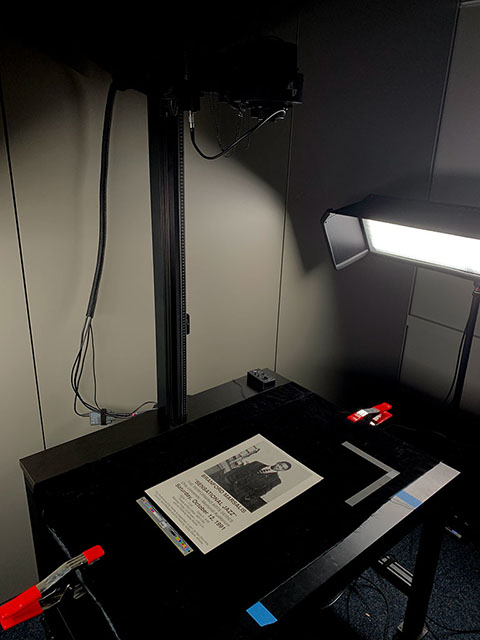
“Aside from preparing the camera and the posters for this process, actually capturing them includes carefully handling them, matching each poster with the correct premade filename, and adjusting the image upon capture to match our standards for digitization,” John said.
At the bottom of the poster John is working on you can see a reference target, which is used to ensure accurate tone and color reproduction. “The target has a dimensional scale as well as grayscale and color patches with known values, making it possible to evaluate these metrics in the future,” according to Erin Wilson, Digital Imaging Specialist & Lab Manager.
Image capture can be a fairly mundane process to watch–John walking back and forth between the camera copy stand, computer, and the slowly decreasing stack of posters. The materials, however, are extremely interesting. You can learn a lot about the time period by viewing the types of events and organizations that were on campus.
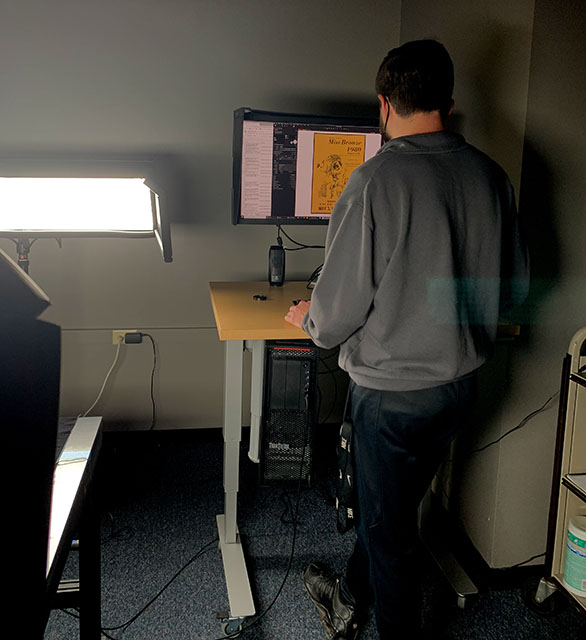
Many of the posters didn’t have dates on them–information vital to the descriptions of these materials for the general public’s use. To find the posters’ dates, John turned to student newspapers in the Digital Archives to find when the events took place. He said he was able to find ads or articles for many of them in The Post.
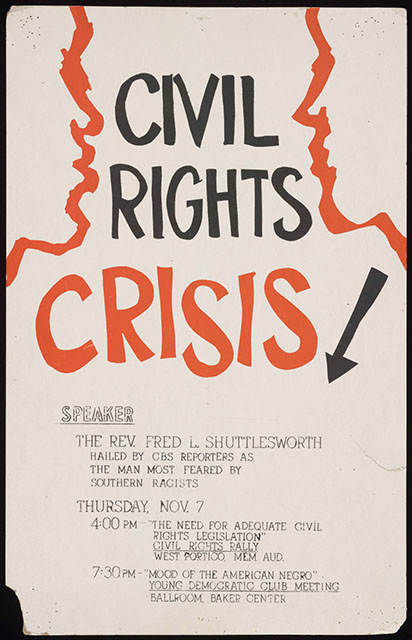
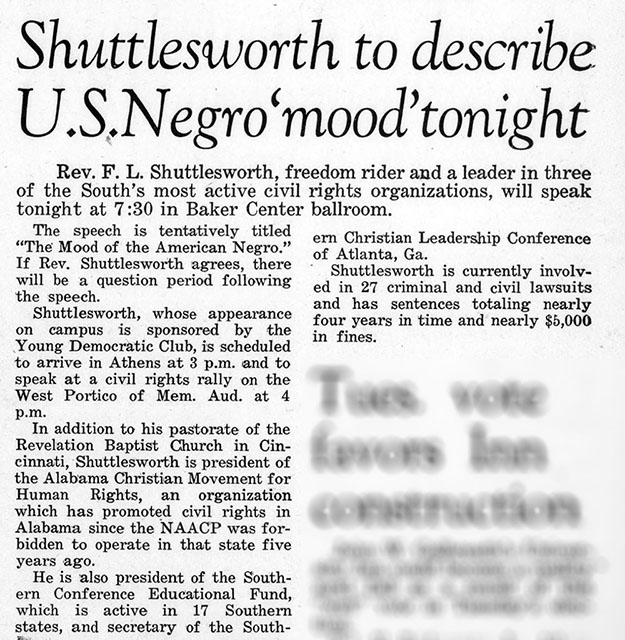
The dates that John researched as well as other descriptive information such as event sponsors or associated campus groups, will appear online in the item records for each poster (see photo below). This metadata is recorded for individual items in a spreadsheet which is often completed prior to image capture. John’s extra research and descriptive information make it possible for users to find the content through keyword and faceted searches.
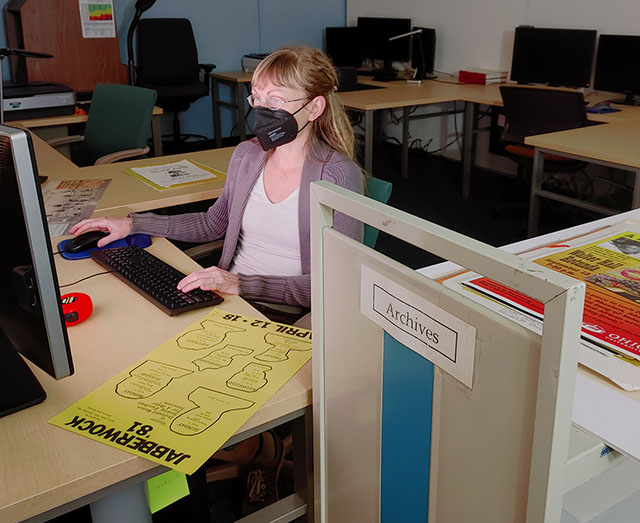
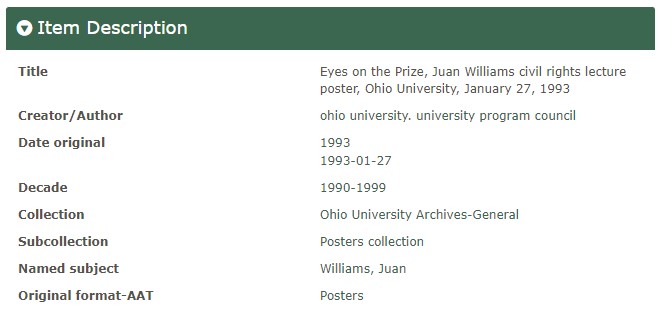
We hope that you have enjoyed this peek behind the scenes! View our many online collections in the OHIO University Libraries Digital Archives, which are freely available at https://media.library.ohio.edu.